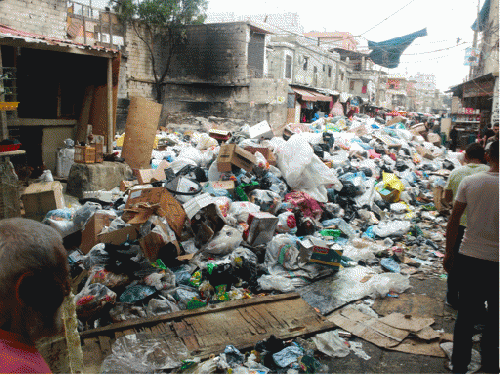As cases of Palestinian camp children being targeted by drug dealers are further revealed, proposals are being put forward by the Palestinian Community, Local, Regional and International NGOs, and Civil Society organizations on how to end this scourge. Taking into account the still prevailing Lebanese stigmas toward Palestinians and the outlawing of their elementary civil rights including the right to work and home ownership, this observer offers some proposals for consideration. Continuing to block Palestinian civil rights here in Lebanon is a fundamental cause of the Palestinian camps' fraying security that exposes camp children to many dangers including drug dealers.
As is widely known among students of the Question of Palestine, serious threats peculiar to the lives of the youth in the camps and of the entire Palestinian community in Lebanon affect their physical and psychological health. These are caused by the many particularly difficult local economic, social and educational circumstances placed on them for political reasons. Acting as incubators for numerous social ills, including children's vulnerability to drug dealers, these threats will not diminish unless strong remedial measures are taken by those of us committed to the cause of Palestine.

Historic Rue Sabra, the main access into Shatila camp, as shown on 11/7/2016. During better times Rue Sabra was a locale for art exhibitions, festivals and proud marches and gatherings by Palestinian Girl and Boy scouts as well as Fedayeen and internation
(Image by Franklin Lamb) Details DMCA
As Miaari, a volunteer who works with camp children and offers short-term vocational training, recently advised visitors: "Getting children out of the streets and away from drug dealers will only happen when we all defy the Lebanese legal system that systematically undermines the Palestinian community's ability to improve its condition."
It is difficult to overstate how central and fundamental are the idea, cause, urge, and need for returning to Palestine in the lives of young Palestinians in Lebanon's camps. Because Palestinians face a grim future in Lebanon, the youth believe that the core reason for their existence is not to build a life here, but to return to a free Palestine and build a life there.
Within Lebanon much that can be done to confront drugs in Palestinian camps in addition to granting the right to work which, in this observer's opinion, is absolutely essential for success with the anti-drug struggle. The proposed initiatives noted below, if implemented without further delay, could achieve much toward eradicating the massive influx of more than a dozen types of drugs targeting children in Palestinian camps today.
Inside the Camps: Pushing Drugs and Child Drug Addiction
Internal Causes
Some of the causes of Palestinian community problems and children being targeted for drug addiction in the camps are related to camp infrastructure. In the past few years UNRWA and some of the international aid agencies have taken several decisions for budgetary and austerity reasons, to diminish health, education, reconstruction and social services. One example is Nahr al Bared camp near Tripoli, which was destroyed by the Lebanese army in 2007 fighting Islamists, but which has still not been rebuilt because previously pledged international contributions have not yet been honored.
These conditions have led to an unstable political climate inside the camps and the feeling by many Palestinians that they are left to their own destiny. Many Palestinians say they have had enough and may revolt to demand the right to work and home ownership. Commonly expressed also is growing hostility toward the camp Political and Social Committees, as well as the political factions and camps militias for failing to confront drug dealers, achieve camp security, and improve camp infrastructure. Fighting among camp residents caused by various domestic disputes and myriad social problems, is also on the increase.
Lebanon's largest Palestinian camp, Ain al-Hilweh, with more than 70,000 usual residents but with now another approximately 30,000 ethnic Palestinians from Syria, packed into 1.5 square kilometers, is also witnessing many children being targeted by drug dealers. Lifelong resident, 17-year old Mohannad reports that "The camp is enclosed around us and we have very little options. As Palestinians we feel marginalized and as youth we are hugely demotivated". According to another precocious, very articulate, young camp resident: " Being forbidden by law to work and economic hardships lead to more anger and violence in the camp households, which increases children's anxiety, accentuates their depression and pushes them out of their homes and into the streets''. He continued: "We have a lot of problems at home. My father is unemployed and angry. I felt forgotten and neglected. I decided to quit school and try the street life. Drug dealers target young, unemployed, poor men who spend their days and nights on the streets and in cafes looking for solace." Lebanon's laws and ministerial decrees have established a series of restrictions that deny Palestinian refugees internationally-mandated elementary civil rights. They are deprived from the right to work in most professions, attend public schools, own property, pass on inheritances and move freely in the country, leaving them little option apart from ''hanging out", jobless and open to escapism in the form of drugs, as the Return to Palestine increasingly appears to be unattainable.
Next Page 1 | 2 | 3 | 4 | 5 | 6
(Note: You can view every article as one long page if you sign up as an Advocate Member, or higher).





